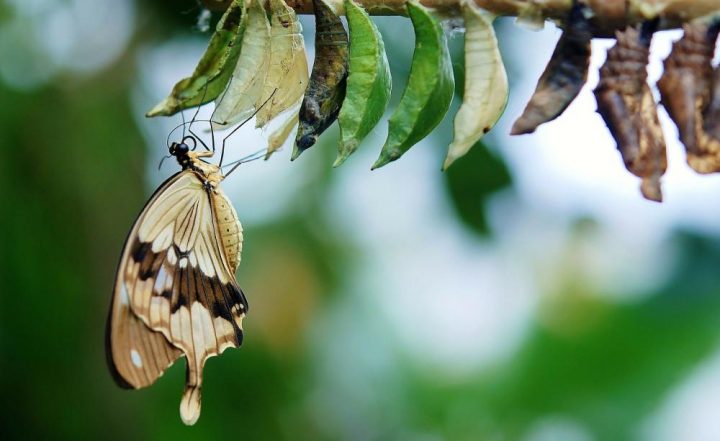Millions of us are using the coronavirus lockdown as a time to reflect on our own actions and the world we live in.
The SARS-CoV-2 virus and subsequent COVID-19 disease is present in nearly every country and has of today infected more 870,000 people globally. However, without international public lockdowns routine testing this figure would be much higher.
When new pandemics occur an almost immediate reaction is to pinpoint the blame on someone, or something.
Despite not knowing the exact origin of the virus, one fact is for certain – COVID-19 is a zoonotic disease that began in humans when it was directly transmitted from a non-human animal, to a human one.
Zoonotic
Early claims of snake or bat origin were frequent in the media, and more recently the pangolin – otherwise known as the most highly trafficked animal in the world – seems to be center stage.
Zoonotic diseases can have no negative impacts in certain species and deadly impacts in others, and blame is unjustly given to non-human animals when there is no intent behind the cause. In other words, whether the origin lies in a snake, bat, pangolin or any other species, any ‘blame’ that we may feel towards that species is unnecessary.
Finding the origin of COVID-19 may be essential to finding a cure, however it is not essential to limiting the spread of the disease, which we can do by changing our behaviour.
The industrialisation of the farming sector has led to ever increasing numbers of animals who are reared for food, numbers almost impossible to imagine. Despite what we would like to think, these animals often live their whole lives in cramped conditions where disease spreads quickly, easily and lethally.
Adding fuel to the fire is stress, which reduces immune system capabilities and increases disease susceptibility. As we know, stress can be both physical and mental, and these feelings are as present in farmed animals as they are in us.
The threat that products from animals have to human health is vast. Campylobacter has been described by the World Health Organisation as the most important food borne pathogens, but this doesn’t originate from a seemingly ‘exotic animals’. Approximately 50-75 percent of the chickens on sale in the UK are infected with Campylobacter, which lead to 700,000 reported cases and a NHS cost of over £710 million annually.
Disease outbreaks
But we are not alone on this planet, and outbreaks of disease affect more than just humans. Avian pathogenic E. coli, commonly spread by poor hygiene in cramped conditions, causes disease in chickens which is described as causing ‘significant economic losses [to the]… industry worldwide’.
But this loss is far beyond just economic value – in the UK alone at least 10 million chickens die unnecessarily from outbreaks.
Little is known about the pain they suffer during the disease, but with fatality rates so high we can make our own assumptions. Researchers in the field have described Avian pathogenic E. coli as ‘not well understood’ and others have expressed concern of this developing into a zoonotic disease – consumer demand for products from animals at rock bottom prices could potentially speed up this process.
A vegan diet, which excludes all forms products from animals, can greatly reduce the risk of zoonotic disease outbreaks. This nutritious and kind diet has been recognised by both the British Dietetic Association and the American Academy of Nutrition and Dietetics as being suitable for every age and stage of life.
The Vegan Society has extensive online sources to ensure you are meeting micronutrient – such as B12 – and macronutrient – such as protein – targets which are suited to your individual needs.
Of course, a vegan diet alone will not stop the spread of zoonotic diseases. Consider for a moment, that if you come into close contact with any other person, then there is a chance of catching an infectious disease.
We are all animals. So, when you come into close contact with any non-human animal, again there is the chance of catching an infectious disease and vice versa. The overwhelming majority of individuals say they love animals, but to love animals we must do this in ways which respect their natural ways of life.
Time for reflection
Non-human animals are not here to entertain, feed or clothe us. They are not here for cosmetic or pharmaceutical purposes. Yet within these industries, large numbers of non-human animals are mass bred to live short and painful lives in environments where the spread of zoonotic disease is a continuous threat to both the species bred within them and the workers in each industry.
In this time of uncertainty, where many countries around the world have gone into lockdown, millions of individuals are using this as a moment to reflect on their lives and the world we live in.
We should be working towards a liberated world in which no non-human animals are artificially bred for any human purposes. This is because non-human animals are entitled to live for their own sake, following their own natural behaviours in their natural habitats.
Most humans share the value, ‘it is wrong to cause harm unnecessarily’. But many of us are currently taught to be ignorant of the harm which artificially breeding non-human animals causes.
Now is a good time to reflect upon the harms which our non-human animal exploitation industries cause – to all the non-human animals involved, and to us as humans as well.
This Author
Louisianna Waring is the insight and commercial policy officer at The Vegan Society. She has a background in both food policy and animal science and is passionate about animal rights. Interested in veganism and the environment? Why not take the seven-day planet-saving vegan pledge at www.vegansociety.com/plateup






